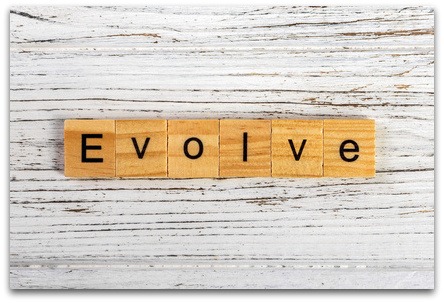Asking difficult coaching questions
Asking Difficult Coaching Questions

Today’s post is in response to a question I was asked. As a coach have you ever wanted to ask a client a difficult question? Did you actually ask the question or did you back away and ask something else instead?
I’m not trying to say that in every situation that the difficult question must be asked, I think a coaching conversation is far more nuanced than such a generalised rule would imply. This post is about looking at providing the option if you find you’re wondering about asking a difficult question.
So let’s define what I mean by a difficult or hard question. In reality exactly the same question may seem a difficult question for one coach to ask and another wouldn’t even give it a second thought.
Personally I’ve found that one of two things is going on if I, or another coach is thinking that a potential question is hard or difficult to ask.
1) There’s some concern there about what the client will think of the coach if that question is asked.
2) There’s something about the question that you want to ask that you think will potentially provoke an “ouch” reaction from your client.
The following are my thoughts and approach about each of those scenarios plus some suggestions about what you can do if you find yourself in either. I invite you to consider your thoughts around your approach.
What will the client think of me if I ask that question?
I think many coaches experience this particularly when they are first learning coaching skills and again when they start charging for their services. It’s not at all compulsory but equally it’s not uncommon.
If your only concern is about what your client will think if you ask that hard question, are you really serving your client by not asking it? After all, that coaching conversation is not about you.
All of which you may agree with in theory but what do you do if you still find your attention wandering in the middle of a session?
Before I share some more on the topic, what would you say to a client who had just said exactly the same in an actual coaching session? Sometimes as coaches we have a “toolbox” or understanding that we forget to make use of because we’re so caught up in the moment and our own thinking.
If nothing comes to mind about what you suggest, here are some ways I and other coaches try. You could notice what you are doing, “beat yourself up” and criticise yourself as a bad coach. Or you could just congratulate yourself for noticing and simply bring your focus back to the coaching conversation and your client. 😉
Often just noticing and bringing your focus back is normally sufficient. If that isn’t working you may like to use one of the many techniques to quiet that “inner critic”. You could mentally tell it “not now, I’m working”, tell it to go away in no uncertain terms or imagine it’s something that is being whispered from a very long way away.
I’ve also seen the external reminders work placed somewhere saying coaching is about your client not you. Maybe it’s a post it note that just says, “It’s not about [your own name]”, or perhaps it’s something else that will act as a prompt when you are actually coaching.
What else occurs to you?
There’s something about the question that you want to ask that you think will potentially provoke an “ouch” reaction from your client.
You may have formed this opinion based on what you already know about your client. It may be you are applying your own beliefs and values and decided that anyone would respond with an “ouch”.
This does not mean that the question you have in mind is not a good one. It could be just the one that is going to make all the difference to your client. You may want to consider how you present the question.
Your style may naturally be blunt, so it’s quite possible that your client already expects you to ask the hard questions without a moment’s hesitation. If that’s the case you’ve probably not got this far reading this post because it’s not something you consider. However, you setting up the expectations that this may happen before you’ve even started coaching together can be a great help.
If this does not suit your style, and I’m not saying it’s right or wrong – just one approach, here are some other suggestions:
• Be honest. Tell them there are several questions you could ask at this stage and how direct would they like you to be? This allows your client to indicate to you how they’d like you to proceed.
Some will give you full permission to just “go for it”, others will make it clear that blunt is not what they want to hear right now.
• Tell your client that you have a question that you are aware may appear to be harsh, it’s certainly not what you intend it to be but you’re wondering if you should ask it.
Notice their response. They are likely to be curious and it’s quite possible that they will give you permission to ask that question. I would suggest that you take your cue from your client and whilst a “no” may not result in you asking your initial question it could open up another line of questions exploring fears etc. (Again, said in the context of a possible avenue to explore, not to be taken as a rule to be used in every scenario)
• Get their permission to ask. This may take the form of one of the above or may just be as simple as “Can I ask you a question?”
Once someone has given you permission to ask a question they are far more likely to answer.
• Asking a question out right can, to some clients in some situations, appear confrontational. This does not necessarily result in a state that you want your client to be in – aggressive or defensive is often not conducive to your client providing an honest answer.
One way you can do this is to put the “question” out there as a thought or something that you were wondering. “I was just wondering …” (delivered in a non-aggressive manner) is a much more gentle way of asking the question.
You may also introduce it as “I’m curious …”
The extent that this point is relevant to you will depend upon your natural style and potentially even the clients you are working with at the time.
• There may also be a way that you can find the same information, or guide the client to the same conclusion/realisation by using much more gentle language. It may take more questions but if that’s what it takes at that time with that particular client, that’s what it takes!
• Use the hypothetical to introduce possibility. “What if …” is one question that will softly get a client to consider a question that they may automatically reject without those two words, “what if”, at the start.
Finally, a question is just a question. Sure there may be ways and methods that you use to make it easier for a client to hear (or for you to ask), but it’s still just a question.
What other ways do you use to ask “hard” questions?
Have you got anything you want to say on the topic?
I invite you to leave your views below and click submit comment.

 Jen Waller is on a mission to support, nurture and encourage coaching skills and talents from non-coach to coach and beyond.
Jen Waller is on a mission to support, nurture and encourage coaching skills and talents from non-coach to coach and beyond.



